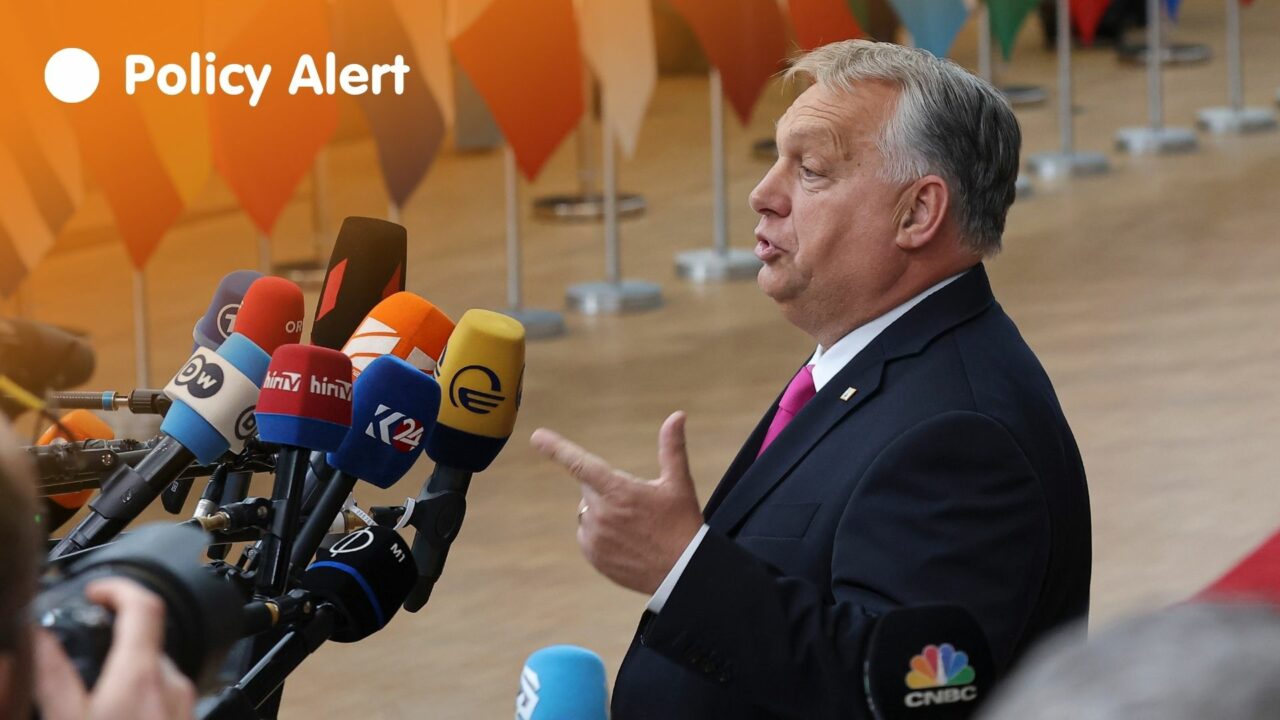Hurdles from Hungary: Navigating challenges to Ukraine’s EU accession
On 8 November, the European Commission backed Ukraine, along with Moldova, to begin European Union accession negotiations. The decision is promising for Ukraine, whose war effort against Russia’s invasion hinges on strong EU relations, as does its post-war future.
Of the three recommendations the commission requires Ukraine to fulfil before finalising the accession framework, two comply with the needs and expectations of EU member states and are acceptable to the Ukrainian government and civil society:
- Strengthen the fight against corruption: To adopt the drafted reform of the National Anti-Corruption Bureau and to extend the powers of the National Agency on Corruption Prevention (NACP), which despite political hurdles will also likely pass.
- Implement the Anti-Oligarch law: To adopt a comprehensive law on lobbying, which the NACP has already drafted and public consultations will be held shortly.
However, the third recommendation has become highly contentious, and stands in the way of finalising accession negotiations:
- Finalise the reform of the legal framework for national minorities: The Ukrainian Parliament fulfilled the biggest part of the VC’s recommendations via adoption of the amendments to the law on the national minorities. However, several adoptions to the laws on the state language, on the media, and on education still needed. The President’s Office already announced the adoption of all these amendments in November. But, Budapest has voiced its opposition to Ukraine’s accession over the implementation of this law. Instead it is pushing the Ukrainian government to find a compromise over the rights of around 150,000 ethnic Hungarians to only use their native language in education, in exchange for its support in Ukraine’s March 2024 accession review.
For Kyiv, this is an unacceptable demand and a highly political move: In the past, Budapest has been accused of using its EU veto to extract concessions from Brussels over withheld funding. Before the commission’s decision, Ukraine’s congress of national communities appealed stating that “unfortunately, petty, selfish considerations sometimes push individual politicians, even European ones, to short-sighted populist steps.”
A diplomatic solution
Ukraine must strive to implement reforms in all areas recommended in the report, and it has an impressive track record of 90 per cent fulfilment since obtaining candidate status in June 2022. As for opening negotiations, Ukraine is well on its way to ticking off the first two recommendations.
To successfully implement the third, Kyiv must continue to adopt diplomatic measures with Budapest so it can maintain its current position on the legislation. While Ukraine’s minister in charge of European integration, Olga Stefanishyna, said that the Hungarian minority is adequately protected and that Ukrainian and Hungarian officials are cooperating on legislative changes, Ukraine should also more actively engage with national minority representatives to communicate these issues to international partners for diplomatic support.
As for the commission, it should engage and compromise with Hungary and other countries who may oppose Ukraine’s EU integration to ensure a united European front when deciding on the final accession plan this December at the European Council summit.
High stakes
Ahead of a lengthy bureaucratic integration process for Ukraine, groundless obstacles risk demotivating Kyiv, particularly when heated debates are already expected around the common agricultural policy, for example.
Over 600 days into the Russian invasion, Ukraine’s post-war path depends on meaningful progress in EU accession. While the country is fighting for its survival – and the security of European borders – there should be no doubt that such a high price requires a long-awaited reward, and Brussels should not give Kyiv any reason to think otherwise.
The European Council on Foreign Relations does not take collective positions. ECFR publications only represent the views of their individual authors.



